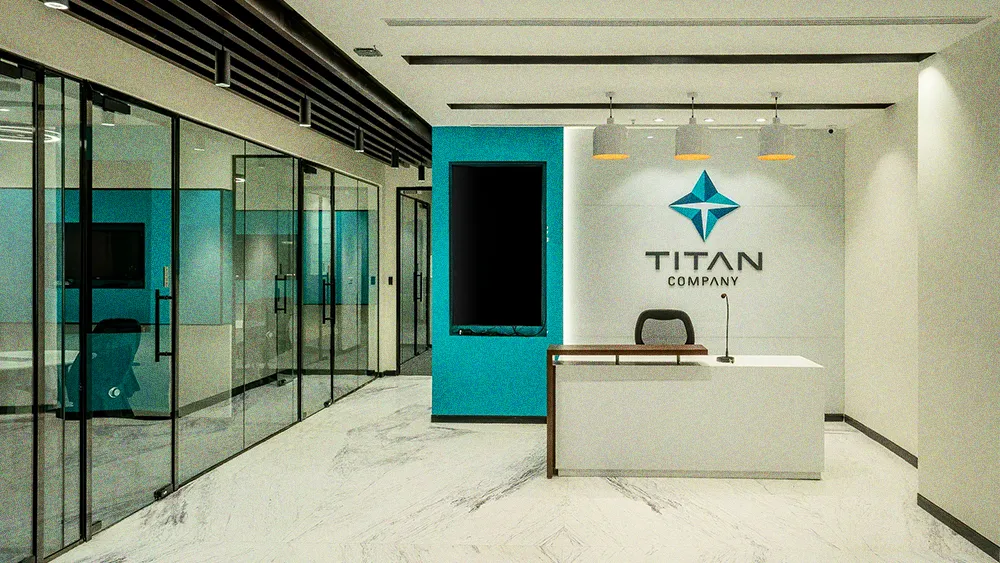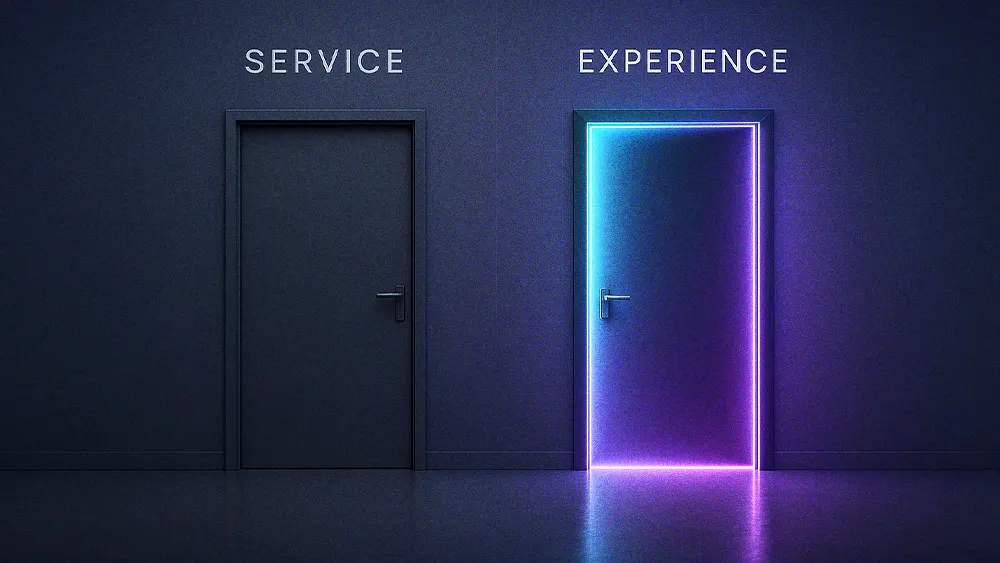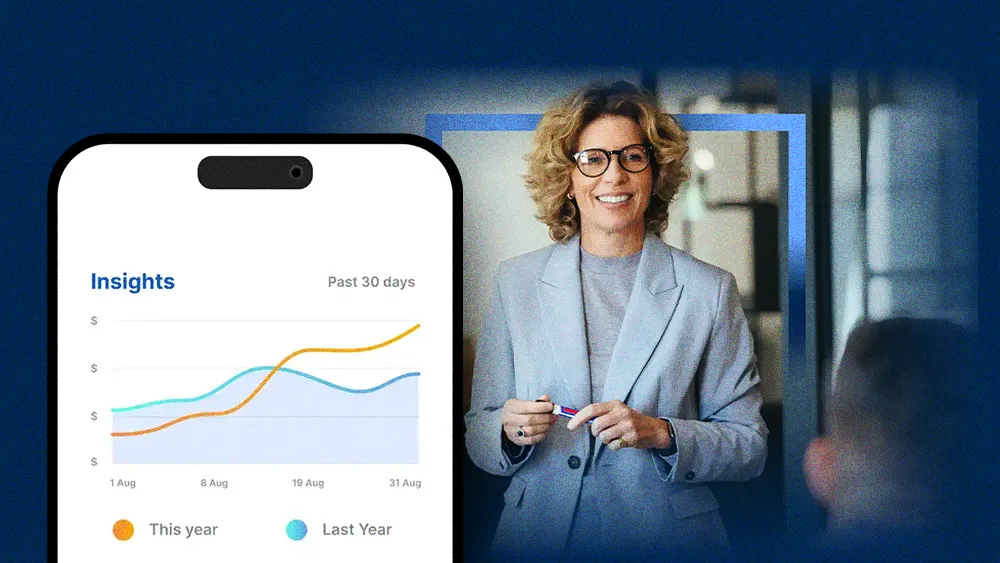
All articles
Former Microsoft Leader Makes Case for Leveling Up CX with a Human-Centered AI Strategy
Ivo Koster, the former Microsoft leader behind Xbox Support's transformation, explains why enabling human agents to build brand loyalty is the real opportunity for AI in CX.

Key Points
In the race to cut CX costs with AI, companies are overlooking its true potential: empowering human agents to build lasting brand loyalty.
Former Microsoft leader Ivo Koster advocates for a new playbook where AI automates simple tasks, freeing up agents for the high-empathy interactions that truly build loyalty.
The approach confronts a classic business dilemma between choosing the "harsh math" of short-term profit and the proactive, customer-centric actions that secure long-term value.
A customer might ask for help signing in, but that is not their real goal. They want to get to the dragon in the cave on level 36. A human can have that deeper conversation to understand what a customer is actually trying to do. A bot simply cannot infer the next crucial step.
For many companies racing to integrate AI into their customer experience, the primary strategy has been clear: use the technology to cut costs by reducing headcount. Now, some experts say this narrow focus might be causing the industry to overlook AI's most tremendous potential. Instead of chasing "fool's gold," companies should automate simple tasks that free up human agents to build brand loyalty.
Ivo Koster is one of the pioneers on the front lines of this debate. During his tenure at Microsoft, which he left in July 2025, Koster was the architect behind transforming Xbox Support. Here, he slashed customer wait times from over 2 hours to under 4 minutes while serving 10 million customers annually and maintaining an industry-leading satisfaction score. Having launched Microsoft's first AI-driven support chatbot back in 2016, Koster is a leader who has managed AI at a massive scale since the very beginning. From his view, the expectation that GenAI would replace people was flawed from the start.
"A customer might ask for help signing in, but that is not their real goal. They want to get to the dragon in the cave on level 36. A human can have that deeper conversation to understand what a customer is actually trying to do. A bot simply cannot infer the next crucial step," Koster says.
NPC energy: The performance gap is due to the uniquely human ability to infer a customer's true intent, Koster explains. "We thought we could just turn it on. But the AI only answered questions correctly 10-15% of the time. Humans, by contrast, got it right 80-90% of the time."
Now, another paradox is emerging as a result. Replacing the old fear about "Big Brother" corporations is a new expectation: today's customers want brands to use their data to create seamless experiences—so long as they don't cross the boundary between helpful and intrusive.
Safe harbor: For Koster, the solution is to draw a clear, defensible line. Proactivity is for clear, unambiguous technical problems, he explains. "For example, we will warn users if their account is in a non-recoverable state and is vulnerable to hacking. We stick to very targeted, non-sensitive scenarios where we can clearly help."
The value-add model: With simple tasks automated, a human agent can build trust by looking out for a customer's best interest. "When a customer calls about a price change on Game Pass, an agent can look at their usage and ask, 'Do you have the right subscription?' We can help them find a better fit, whether that means upgrading or even moving to a more affordable tier.”
Some companies have already mastered this proactive approach, Koster says. "Tencent is a great example. They have built impressive automation to proactively reach out to lapsed players, offering a free in-game item or a discount to entice them back." But a customer-centric vision can also clash with harsh business realities, Koster explains. Here, he's candid about the internal conflict between long-term loyalty and short-term revenue.
The harsh math: When a customer hasn't used their subscription in months, the business must make a financial calculation, Koster continues. "Is it more expensive to handle the support call, or should we just keep taking the customer’s money for five more months? It is not a great choice, but doing the right thing for the customer would clearly be the better path."
Plus, Koster says, another unsolved problem compounds this business dilemma: technology cannot replicate genuine human empathy. And, when a policy is the barrier, simply changing the reasoning is not a solution.
The transparency trap: Customers instinctively believe a human has a capacity for discretion that a machine lacks, Koster explains. "Even if you give a customer more reasons why the answer is no, they still have that gut feeling that a human could make a different judgment call. Simply providing more information does not build trust."
Ones and Zeros: "You can program a bot to have more leeway, but it just becomes a different equation," he says. "'Okay, in two out of ten cases, we will grant the refund.' It is still just ones and zeros. A bot can be programmed to sound empathetic. But making a genuine judgment call is still a uniquely human skill."
"The ultimate goal is to create a connection that makes the customer feel, 'Wow, they really understand me. They really care.' That is the feeling you want to exude," Koster concludes. Pointing to Chewy as the North Star, he explains how the pet company is famous for sending unsolicited painted portraits of customers' dogs and for its genuine response when customers cancel subscriptions because their pet has passed away.
In closing, Koster brings the conversation full circle. "The industry is overwhelmingly focused on using AI to cut costs. That is fine for simple tasks, but it is a missed opportunity. What I am not seeing is a focus on enabling humans to build brand loyalty. We should be using technologies like Agentic AI to solve the simple stuff, while using tools like Copilot for Dynamics to help an agent be that extra step. The human capacity for empathy is what truly creates loyalty. That is where the focus should be."







